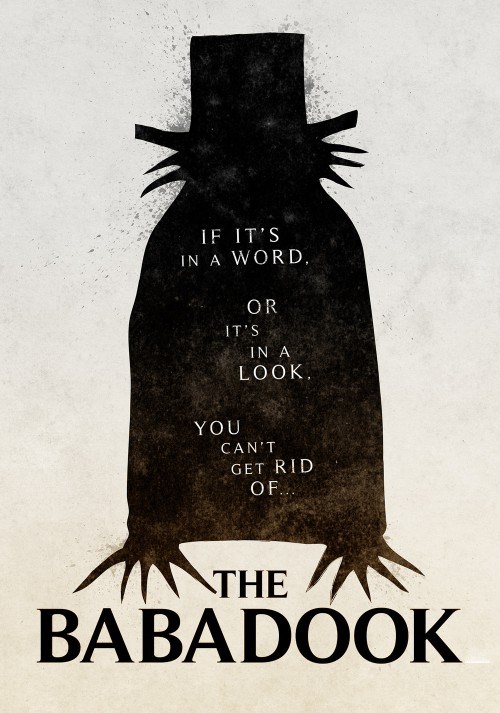Ten Horror Movies Worth Seeing, #6: The Babadook
October 11, 2018 in General Topics, Other Stuff
 One of the things I’ve learned from having children is how little I’d understood about the experience before. There isn’t much I’d say someone is unentitled to comment on without having undertaken, but this? Definitely. It has been both the most rewarding thing I’ve ever done, and the hardest. Take the range of emotions you’ve felt, good and bad, and imagine them at double the intensity, then you’ll have a distant idea of what it’s like.
One of the things I’ve learned from having children is how little I’d understood about the experience before. There isn’t much I’d say someone is unentitled to comment on without having undertaken, but this? Definitely. It has been both the most rewarding thing I’ve ever done, and the hardest. Take the range of emotions you’ve felt, good and bad, and imagine them at double the intensity, then you’ll have a distant idea of what it’s like.
And it’s the emotions no parent talks about that The Babadook zeroes in on. This film peels back and lays naked the sheer endurance test awaiting parents when something goes wrong. It’s nightmare fuel for millennials (who often view children primarily in terms of subtraction) and experienced parents (who know all about the fickle hand of chance).
Amelia (Essie Davis) is a single mother living amid two profound stressors: the wake of her husband’s death, and the erratic behavior of her troubled son Samuel (Noah Wiseman). If there’s a better set of mother and son performances in cinema, I’m not sure I’ve seen them. It all works so well, and some of that is due is the creatives involved. Essie Davis is a mother herself, and the writer/director is Jennifer Kent, who as you noticed is a woman. I can’t imagine The Babadook being as stark as it is without women so deeply involved. This film puts a razor focus on the exhaustive task of motherhood and the sometimes conflicting emotions that live just under the surface, for which good mothers are both familiar with and, in consequence of, feel terrible guilt about. Sometimes raising kids isn’t pretty, and having a child with problems can stretch one to the limits.
Samuel’s troubles look mundane early in the film. He’s adamant there is a monster afoot, to the point of shouting, and–in true behavioral issue fashion–his protests are unrelenting and nerve-assaulting. Amelia is so beaten down she turns to drugs to try and get some sleep. There’s a wonderful sequence any parent can relate to, where Amelia finally has the chance to simply lay down and rest. Of course that isn’t permitted to persist.
The eponymous title creature, the Babadook, doesn’t so much shock its way into the film as it does slowly melt its way into Amelia and Samuel’s lives. There’s hints that the creature has been brought on by Amelia’s stress; she spends the bulk of her screen time verging toward a mental breakdown. Indeed, we’re never completely sure if the monster isn’t a product of Amelia’s own mind. But there are, at least, tangible markers that the thing is real, including the appearance of an extremely creepy book.
Something has to be said for the pitch-perfect way the Babadook is brought to life. There’s no lame jump-scares, no buckets of stage blood, no gimmicks. This movie takes the monster seriously, and is more than happy letting its malevolent gaze do the bulk of the work. It paints the creature’s presence with shadows and lets it move in a way that is nightmarish. When we finally catch a glimpse of its true form, we’re left without all the details, which is much more frightening than if there had been a full reveal. Jennifer Kent knows the power of the implied; the subtle. The approach made a classic out of The Blair Witch Project and layered utter dread throughout The Mothman Prophecies, and here the approach, like in those films, never feels derivative.
It’s not all doom and gloom, either. At its core, The Babadook is a message about a mother and son grappling with titanic challenges and rediscovering the emotional core of love that will carry them over those obstacles. The story is able to show the awesome power of family because it succeeds at being so raw and genuine. That’s what great horror movies do. Such films make us dread their monsters more because we care about those in their path.
Our next review looks at another family in peril, and they’re smack in the middle of one of the most period-accurate films you’ll ever see.

Recent Discussion